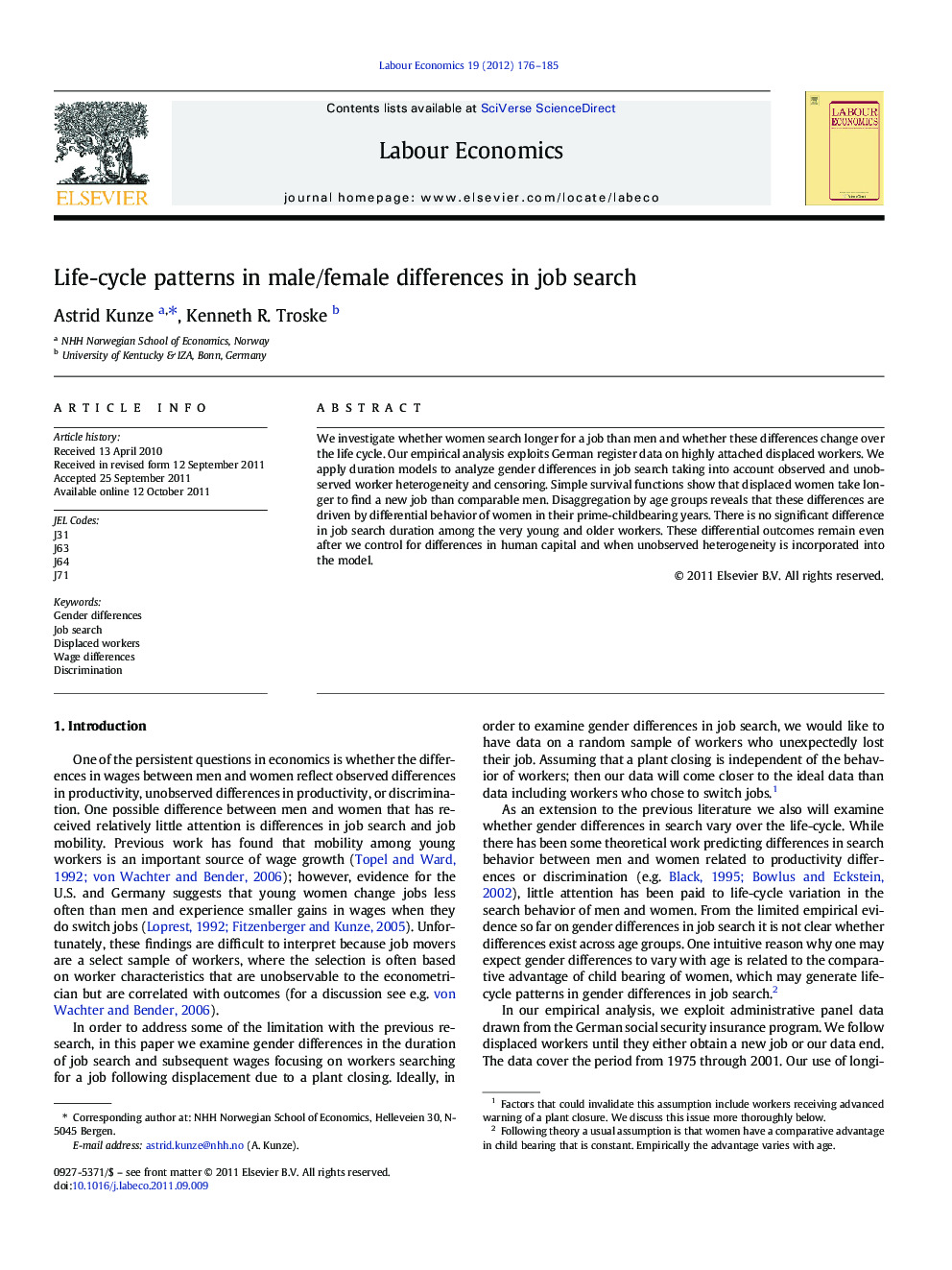| Article ID | Journal | Published Year | Pages | File Type |
|---|---|---|---|---|
| 971548 | Labour Economics | 2012 | 10 Pages |
We investigate whether women search longer for a job than men and whether these differences change over the life cycle. Our empirical analysis exploits German register data on highly attached displaced workers. We apply duration models to analyze gender differences in job search taking into account observed and unobserved worker heterogeneity and censoring. Simple survival functions show that displaced women take longer to find a new job than comparable men. Disaggregation by age groups reveals that these differences are driven by differential behavior of women in their prime-childbearing years. There is no significant difference in job search duration among the very young and older workers. These differential outcomes remain even after we control for differences in human capital and when unobserved heterogeneity is incorporated into the model.
► We compare job search durations of men and women after plant closure in West-Germany. ► At the mean women search longer for a new job than men after displacement. ► Gender differences are driven by women in their prime-childbearing years. ► Robust result is that gender differences in search follow a life-cycle pattern.
